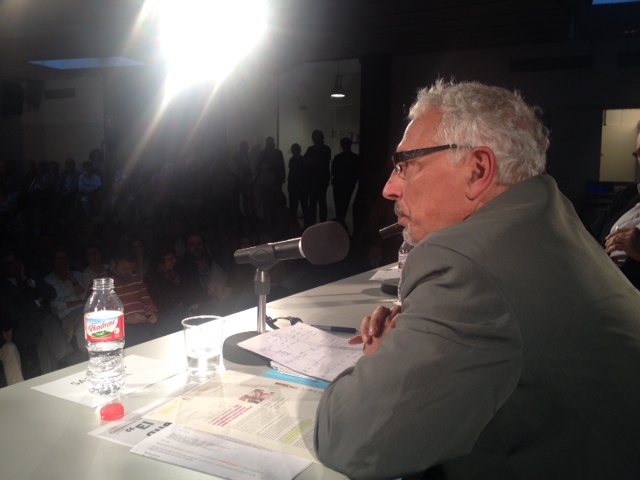28.05.2014 - 09:39
Judge Santiago Vidal participated in a very well-attended ANC event in Sarrià – Sant Gervasi Tuesday in which he explained the outlines of the Catalan Constitution that he has been editing. When asked about his testimony on Monday before the General Council of Judicial Power in Madrid, Vidal explained that the Spanish magistrate was particularly interested in knowing if an independent Catalonia would accept the King of Spain as its own “like Scotland would do”. Vidal, who said he thought the question was very telling, explained that he was treated with utmost respect.
In his talk he sketched the outline of the Constitution that he is editing with the help of other judicial scholars. According to him, the constitution will be short and simple, with less than one hundred articles, which in turn will also be concise, without related subarticles.
Vidal said that the principal characteristic of the constitution will be to establish a strict separation of executive, legislative, and judicial powers, in contrast with the current system in Spain.
With respect to the executive power, there will be strict term limits, with a maximum of eight years, or two legislative sessions. Vidal said politicians in an independent Catalonia should spend some years in politics but that they should not be there permanently: “they should have their own professions before entering politics, and they should return to those professions when they leave politics”.
He also said that in the single chamber Parliament of the future republic, there will be open party lists so that citizens can choose individual candidates, even from different parties if they so desire.
Santiago Vidal focused special attention on the structure and procedures of judicial power in the future republic. Most trials will take place in nearby neighborhood or district courts, and will have to be completed within six months. The decision could be appealed to a higher court, that would have three months to make a ruling, or as a last resort to the Supreme Court, that would have an additional three months. These terms would be obligatory. If a judge didn’t rule in the allotted time, he or she would first receive a warning, second would have to pay reparations to the parties involved, and finally would be removed from office.
To guarantee the maximum independence of the judiciary, the Supreme Court would have five areas: one of which would be for constitutional guarantees which would have five magistrates each chosen separately. The first would be chosen in a popular election. The second would be chosen by the Parliament, with a consensus of 3/4 of the MPs. The third would be chosen by the country’s ombudspeople. The fourth judge would be chosen by members of the legal profession. And the fifth would be chosen by the approximately 1000 judges that would exercise as such in an independent Catalonia. In this way, it would be impossible for the highest court in the country to be controlled by any one political party or faction.
The event, which was moderated by actor Sergi Mateu, also included presentations by Liz Castro and Vicent Partal.



